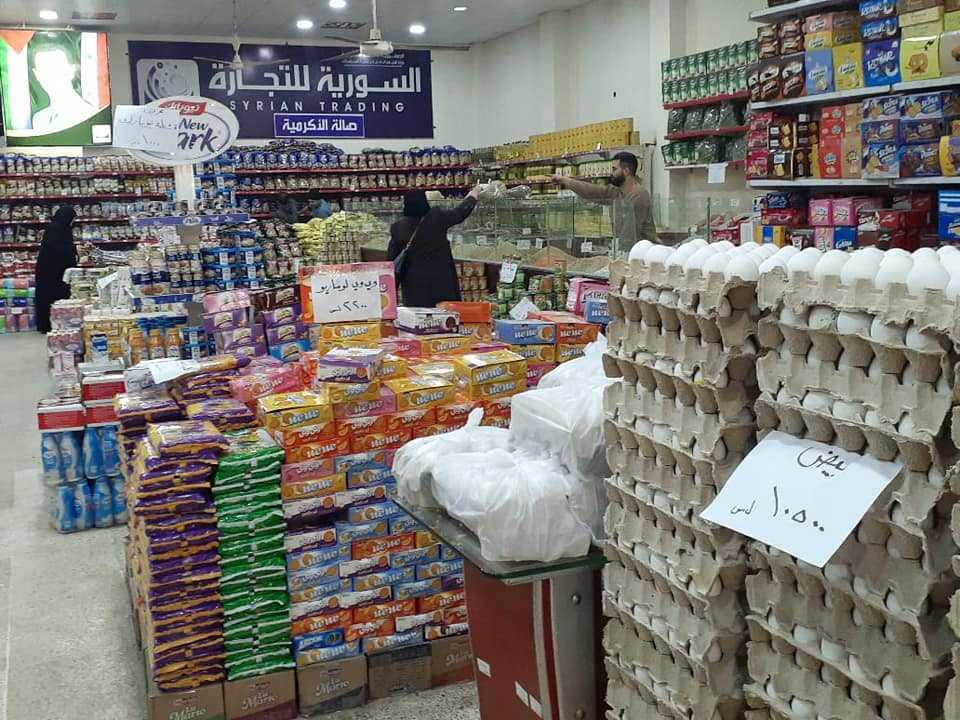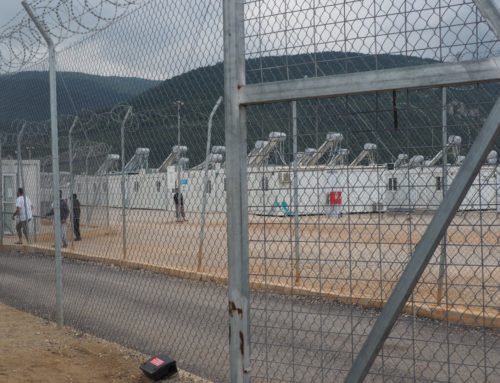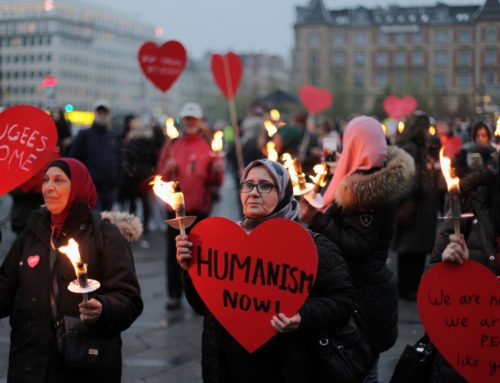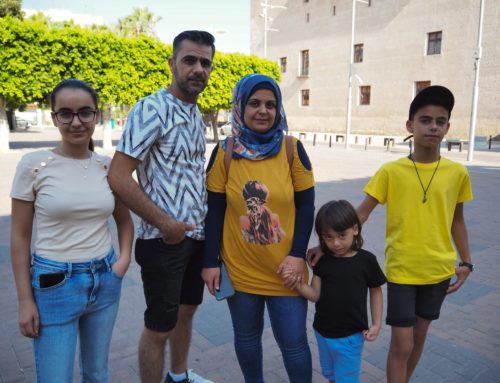Damascus lifts subsidies as it explores futile solutions to its economic woes
The economic tools used by the regime are unlikely to bring about positive results for the official Syrian economy, but they will deepen the suffering of civilians who have lost access to subsidized goods and services.
24 February 2022
PARIS — “The state can no longer sustain the same type of support that has existed for the past decades,” Damascus government Prime Minister Hussein Arnous stated on February 10, explaining his government’s recent decision to remove subsidies on essential goods from a wide segment of Syrian citizens. He justified the step by the need to direct and structure state support “according to the correct criteria, so it is provided only to those entitled to it.”
In January, Damascus excluded nearly 600,000 families from state subsidies on basic goods and services through the government support card, or “smart card,” before later returning support to some it said had been mistakenly excluded.
The decision to lift the subsidies came as the Ministry of Finance offered treasury bonds, valued at SYP 200 billion ($55 million according to the current parallel market exchange rate of SYP 3,635 to the dollar) in the first government securities auction of the year. An additional SYP 400 billion ($110 million) in government securities is set to be offered, in varying amounts, at three upcoming auctions through the end of the year.
The regime’s recent fiscal policies coincide with decisions in recent weeks to raise the price of fuel for the public and private sectors and withdraw electricity subsidies from industrialists, indicating that Damascus is entering a new phase of economic shortfall. Economic experts who spoke with Syria Direct are skeptical that these economic tools, including removing subsidies, will positively affect the Syrian economy. Rather, they will deepen the suffering of Syrian citizens.
Lifting subsidies
In late January, 596,629 families holding a smart card, some 15 percent of those receiving support, were excluded from state subsidies Assistant Minister of Communications and Technology for Digital Transformation, Fadia Suleiman told pro-Damascus newspaper al-Watan. Factors in removing subsidies included ownership of multiple cars, a business, or real estate properties, she said.
The family of Amal al-Dimashqi, a journalist living in Damascus, is one of those excluded from government subsidies last month because “the family had a commercial registration and two cars,” she told Syria Direct. But they were excluded on the basis of wealth that exists on paper but not in reality. “The commercial registration is for my husband’s shop, which he opened in 2006 and closed three years later,” said al-Dimashqi, and one of the cars “was sold under a sales agency agreement, without transferring the title in order to avoid the complicated government procedures.”
The only car that the family actually owns is “a 2006 model, with an engine of less than 995 cc, meaning it is eligible for the subsidies,” said al-Dimashqi. She made a complaint about the decision through the government platform for that purpose, but “the request was rejected.”
The move to lift subsidies caused a widespread wave of anger in Syria that culminated in protests in the country’s southern Suwayda province calling for the overthrow of President Bashar al-Assad. The Damascus government took a step back by opening a way for those excluded from subsidies to file objections to the decision via an online platform.
As of mid-February, the number of objections had reached 381,159, according to Suleiman. Of these, the Ministry had processed 209,178 requests, and accepted 70,154 as eligible for support.
The decision to remove subsidies underscores once more that “the regime is bankrupt,” according to Manaf Kuman, an economic researcher at the Omran Center for Strategic Studies. “It is not the first indicator that the regime is bankrupt,” he said, “as for years it has been unable to secure hard currency and finance the budget.”
With Damascus losing the ability to fund its budget through natural resources, taxation, investments, and other sources, it “has resorted to lifting subsidies in order to ease the burden on it,” Kuman told Syria Direct.
Treasury bonds
Of the SYP 200 billion that the Ministry of Finance hoped to raise from the first auction of government securities—which took place with the participation of nine public and private banks in January—the volume of bonds allocated was SYP 158.5 billion ($41 million).
Six Syrian banks won the first bonds auction, the results of which were issued at the beginning of February, with an interest rate of 6.75 percent to be distributed semiannually. The Ministry had announced its intention to organize four treasury bonds auctions in 2022 worth a total of SYP 600 billion ($165 million), with different terms and values, in order for “investment spending” to fund the public sector. The sales also aim to secure investment opportunities for the private and public banking sectors to make “low-risk” investments with their deposits, according to a statement by the Ministry.
Treasury bonds are loans issued by the state for public subscription, with different terms of up to 30 years, in order to obtain funds from individuals or institutions in exchange for an annual return in the form of fixed interest.
Usually governments use this financial instrument to bring about economic development in the country and to support the state budget with revenue, and hence they are called production or development loans. But in the case of Syria, Damascus uses this financial instrument to fund the general budget deficit, pay salaries, and finance its war.
The Chairman of the Syrian Commission on Financial Markets and Securities, Abed Fadilah, told Russian state-owned news agency Sputnik on January 26 that “nobody knows what the SYP 130 billion that the Ministry of Finance borrowed about two years ago was spent on,” criticizing his government’s policy in dealing with the sums it collects from offering treasury bonds.
These loans have become an “accumulated burden on the state’s treasury,” Fadilah said. Economists always insist that the funds from these loans be used in necessary, productive, strategic projects, he explained, so that the borrowing is feasible or justified, considering that it has a cost—interest. The loans should not be spent on marginal or consumer projects that turn them into a burden, he said.
For the Damascus government, offering treasury bonds and securities has become “the easiest option to finance budget items in the face of the regime’s deficit, in order to survive financially,” said researcher Kuman. This is not the first time that Damascus has followed this policy.
“Any country suffering from economic crises and international sanctions will resort to easy ways to fund the budget, such as treasury bonds or printing money,” said Kuman, but “the regime could resort to this method for decades, so long as it remains in power,” ignoring the negative effects.
Karam Shaar, an economist and Research Director of the Operations and Policy Center (OPC), said that governments “print money when they are in financial trouble and need government spending, leading to inflation,” but “borrowing from the private sector or individuals and paying this sum later [as in the case of selling treasury bonds]does not lead to inflation.”
But Shaar downplayed the Damascus government’s success in benefiting from offering treasury bonds, citing the “government’s inability to collect 5 percent of the general budget in previous years’ treasury bond offerings.”
Additionally, this year, “the lack of confidence among lenders in Syria, whether the private sector or individuals,” will inhibit the use of this tool.
Furthering this point, Kuman wondered “who is the investor, bank, or citizen who would buy bonds signed by the Syrian government, knowing the government’s situation and the sanctions imposed on it.” He said the decision to offer treasury bonds “will not be able to improve the Syrian economy.”
The exchange rate of the Syrian pound has continued to collapse in recent years, as illustrated in the graph above, despite the issuing of financial securities. Many factors have contributed to the currency’s decline, says Kuman, including the regime’s economic policies and international sanctions imposed on it. There is “a lack of precise information about the amount of funds the regime has been able to obtain by selling these financial securities, and to whom they went.”
There is also a disparity between officially-announced figures about the financial securities that have been offered and how many were actually purchased, said Shaar, “as the percentage sold is less than the amount offered.”
In recent years, “the public sector and companies have refused to buy these regime securities,” he added, “because their interest rates are low after accounting for inflation, and sometimes negative, even though the nominal interest offered is high.”
‘Shifting the burden’
Both lifting subsidies and selling bonds “reflect the economic pressure the Syrian regime is under, according to Kuman. Damascus has exhausted the majority of its financial instruments to fund its budget, he said, and is left with only limited tools that it has used before, such as printing money, selling bonds, and removing subsidies for some goods as it did in January, “in an attempt to alleviate the cumulative burden.”
Kuman said current economic decisions “came as a result of the state of economic paralysis, sanctions, obstruction of the political process, and loss of sources of funding, as well as the poor state of taxes and deterioration of the economic situation in the country.” However, in his view this does not absolve the regime of its responsibility to “secure goods and services for citizens at reasonable prices, and to alleviate the [cost of] living burdens on them.”
Rather than subsidizing the prices of goods and services for its citizens, “the regime resorts to placing these burdens on citizens,” he added.
Kuman warned that removing government subsidies has plunged Syrian citizens into a new economic crisis, forcing them to “buy goods and obtain services at the global price, at a time when the Syrian pound is continuously falling and its purchasing power is declining.”
Researcher Shaar agreed with Kuman, saying “citizens are hit hardest.” He pointed out that “removing support for people who need it least does not mean that they do not need it” at all, especially since “the overwhelming majority of people in regime areas, more than 90 percent, live below the poverty line.”
Searching for solutions
Before pursuing financial policies to shore up its economy, the regime must “work to restore private sector confidence in the economy and the government,” said Shaar. He pointed out that the past two years saw “the bankruptcy of many investors and businessmen, and their fleeing the country.”
“The theft of investors and the private sector, and attacks on venture capitalists by the regime [must] be stopped,” said Shaar, “in the sense that the regime stops using the private sector as a scapegoat for all its failures.” He stressed that “unless the private sector is convinced of the benefit of staying, investing, and working in Syria, then the very bad situation will become worse.
But “the regime’s economic apparatus, constrained by everything,” as Kuman described it, “is incapable of movement for a number of reasons to do with the regime itself,” so “you can’t ignore the main illness and talk about optimal solutions.” He added that “when the regime and its symbols are gone, we can come up with a thousand solutions.”
Instead of seeking fundamental solutions, the regime resorts to methods that do not ease the economic burdens on civilians, but rather “alleviate the shock,” according to Kuman. He stressed that “the regime follows the pattern of partial shock: it removed subsidies from a segment of Syrians, but will soon expand the circle of those excluded, until support is lifted completely.”
On the other hand, civilians are facing more price increases, meaning that “citizens bear double [cost of] living burdens, due to the pound’s continuous loss of purchasing power and the regime’s inability to finance and support many goods,” according to Kuman. All that “pushes the regime to transfer more burdens from its shoulders to its citizens.”
Emphasizing that point, al-Dimashqi, whose family lost access to state subsidies last month, said, “our annual spending on gasoline, diesel [mazut], rice, sugar, and [natural] gas is around SYP 2.5 million [$688] according to prices subsidized through the smart card.” Now, with subsidies lifted, “our annual expense will be around SYP 6 million [$1,650].”
Researcher Shaar expects further deterioration in regime areas as nothing indicates a possible improvement in the economy, “especially since the indicators of improvement that appeared during the period of [various countries] restoring relations with the regime faded once the train of normalization stopped.”
This report was originally published in Arabic and translated into English by Mateo Nelson.







